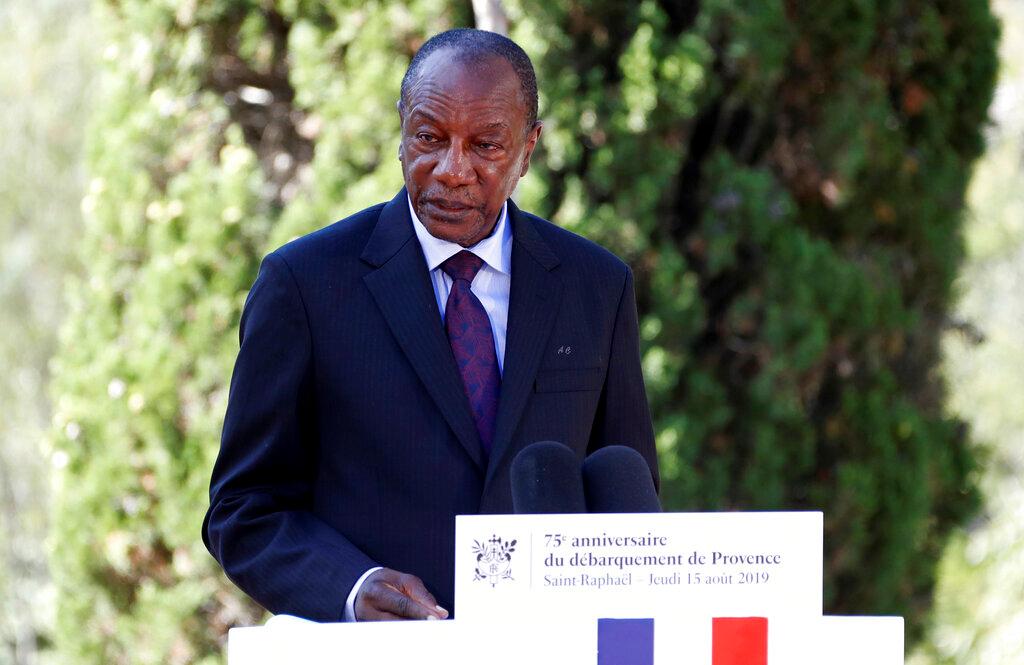CONAKRY, Guinea—A Guinean army colonel seized control of state television Sunday and declared that President Alpha Conde’s government had been dissolved in the West African nation, an announcement that came after hours of heavy gunfire near the presidential palace.
The dramatic developments Sunday bore all the hallmarks of a West African coup d’etat. After seizing the airwaves, the mutinous soldiers vowed to restore democracy, closed the country’s borders, and gave themselves a name: The National Committee of Gathering and Development.





